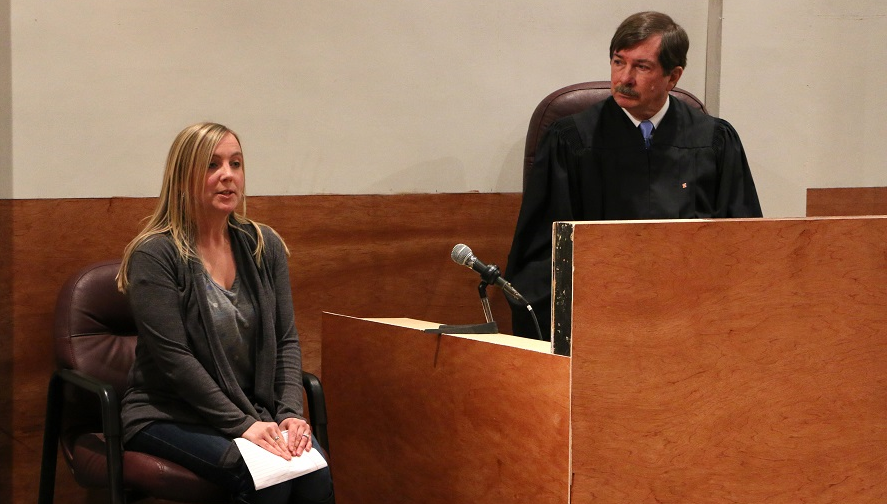
When a child is injured or killed by an adult in the home, a marked gender division appears in the application of criminal responsibility against the non-abusing parent. When children are harmed by a man in the home, mothers are regularly prosecuted under statutes criminalizing the failure to protect one’s children. The charges are frequently levied against the mother as a principal actor—as if she herself had committed the abuse—rather than as an accomplice or as a negligent caregiver. Women have been charged with first-degree murder when their partner kills their child, even when they weren’t home at the time of the killing, and in at least one case, when the mother wasn’t even in the same state. Yet men virtually never face charges when the roles are reversed and the mother has harmed the children while the father has failed to protect them. What’s more, non-abusing mothers have at times been given harsher sentences than the fathers who actually committed the abuse; in at least one case, a mother was convicted and served time for the crime of leaving her child with the abusing father, while the father was acquitted of any crime was released. Women have received up to life in prison for the crimes of their partners. Although the statutory or common law upon which such prosecutions are based is gender-neutral, the application of the principles is decidedly not.
Current cultural and legal expectations of mothers place upon them an increased responsibility for the safety of their children. The legal “reasonable person” standard morphs into a “reasonable mother” standard that is implicitly more stringent and punitive than expectations of a “reasonable father.” This places disproportionate burdens and punishments on mothers, twists the legal concepts of foreseeability, intent, and parental duty while making them contingent upon the parent’s gender, and holds mothers and fathers to disparate standards of care. When the theory is applied against mothers, the standard requirement of criminal intent is sometimes stretched beyond recognition. These disparities are seen at every level, including law enforcement investigation, media reports, prosecutorial decision-making, courtroom evidence and discourse, jury deliberations and decisions, and judicial statements and sentencing. Yet they are typically invisible to every actor in the system. The lack of any coherent or systematic tracking of such cases further allows them to pervasively continue and under the radar.
The result is that the crime of failing to protect one’s children from harm caused by another is in effect a status crime that is contingent more on gender than it is on behavior. The absence of overt gender distinctions in the law disguises the fact that the operation of the criminal justice system is deeply informed by and in service to stereotyped social demands of women while it masquerades as a system of neutral, evenhanded justice.
Keep reading "The Law of Motherhood in the Gender-Dependent Application of Criminal Responsibility for Failing to Protect Children" in the Georgetown Journal of Gender and the Law.

Professor Deborah Anthony has been with the Legal Studies department since 2006. She is serving as Chair of the department and Director of the UIS Pre-Law Center. She holds a B.S. in Philosophy from the University of Utah; an M.A. in Government from the University of Texas at Austin; and a J.D. from Georgetown University. She previously practiced law serving indigent individuals, where she specialized in family law, domestic violence, civil rights, and housing law, including public and subsidized housing. She currently teaches in the areas of constitutional law, philosophy of law, poverty law, family law, employment discrimination, and public advocacy. She conducts research in modern and historical gender law, constitutional law, family law, employment discrimination, and the legality of the current practices of the U.S. Border Patrol. She has published articles on the Americans with Disabilities Act, the Family and Medical Leave Act, employment discrimination under Title VII, parental leave policies at colleges and universities, and sex- and gender-based rights in family law. She has also published work investigating the historical development of women’s legal and political status, revealing the increasing constriction of women’s rights over time in English legal history, the impact of those developments on U.S. law and tradition, and the ways in which political memory operates to manipulate public conceptions of historical events in ways that shape concepts of personal and national identity and directions in public policy. Recent publications have analyzed the constitutionality of U.S. Border Patrol actions, particularly with respect to Fourth Amendment search and seizure provisions, and the disparate prosecution of mothers when another parent harms their children.


